Double Indemnity (1973)
Directed by: Jack Smight
Written by: Billy Wilder, James M.Cain, Raymond Chandler, Steven Bochco
Starring: Lee J.Cobb, Richard Crenna, Robert Webber, Samantha Eggar
HCF may be one of the newest voices on the web for all things Horror and Cult, and while our aim is to bring you our best opinion of all the new and strange that hits the market, we still cannot forget about our old loves, the films that made us want to create the website to spread the word. So, now and again our official critics at the HCF headquarters have an urge to throw aside their new required copies of the week and dust down their old collection and bring them to the fore…. our aim, to make sure that you may have not missed the films that should be stood proud in your collection.
A few weeks ago Doc looked at the 1944 classic Double Indemnity and was still stunned by what a superb film it is. Yesterday, he dared to watch the 1973 TV movie remake and….well….read on!
HCF REWIND NO.64. DOUBLE INDEMNITY [1973]
AVAILABLE ON BLU RAY AND DVD
RUNNING TIME: 73 mins
REVIEWED BY: Dr Lenera, Official HCF Critic
Walter Neff, a successful insurance salesman for Pacific All Risk, returns to his office building in Los Angeles late one night. Clearly in pain, he he sits down at his desk and begins dictating a memo into a Dictaphone machine for colleague Barton Keys, a claims adjuster. We flashback to when Walter first meets the sultry Phyllis Dietrichson during a routine house call to renew an automobile insurance policy for her husband. A flirtation develops, at least until Phyllis asks how she could take out a policy on her husband’s life without his knowing it. Neff realizes she is contemplating murder and leaves, but Phyllis pursues Neff to his own home, and Walter’s gullibility and libido quickly overcome his caution. He agrees that the two of them, together, will kill her husband. Walter, knowing all the tricks of his trade, comes up with a plan in which the death will seem accidental and trigger the “double indemnity” clause of the policy, forcing Pacific All Risk to pay the widow twice the normal amount……..
There are several forms a remake can take. It can be a simple rehash with a few differences. It can be very different and maybe go back to the original source material if the original movie was based on a book, a play etc. It can be the same story but in a different genre. It can take advantage of the fact that censorship has relaxed and bring to the fore elements that the original film was unable to emphasise. Etc, etc, etc. The most pointless kind of remake to me are the ones that are either shot-by-shot or which use the same script. The 1998 Psycho comes to mind as a particularly stupid example of the former, while the 1955 version of The Four Feathers, Storm Over The Nile, seems to me a very poor example of the latter [and even uses some of the same battle and location footage!]. Very occasionally, it can work. Michael Haneke’s American copy of his own Funny Games is at least partially excusable, while the 1952 version of The Prisoner Of Zenda really takes advantage of the fact that it is in colour and improves the action scenes, even if it still uses virtually the same script as the 1937 version. Nothing though prepared me for the unbelievable lazy travesty that is the 1973 TV movie remake of Billy Wilder’s fantastic murder drama Double Indemnity [the first major film noir and probably the best ever made], a fiilm whose inclusion in Universal’s R1 DVD set of the 1944 film I just cannot fathom.
Watching this version is an almost surreal experience, but not an enjoyable one. Realising they could not come up with a better script than Wilder and Raymond Chandler, the makers of the remake decided to use said script. The trouble is, dialogue which was at home in the 40’s just does not work when moved to the 70’s, while the 73 mid running time means that around half an hour has had to be removed. The result is like watching an incomplete assembly of the original film but with everything poorly done, as if nobody really had any real faith in the story. The scenes and dialogue are mostly the same but are often cut off in a way that might seem incomplete even to one who has not seen the ’44 picture, and, what’s more, the lines are often badly delivered by stars Richard Crenna and Samantha Eggar, who seem ill at ease throughout. Neff narrates again though many of the best bits of narration are missing, such as the “it was the walk of a dead man” monologue, helping to remove the incredible sense of fatalism the original movie had. In fact, despite it being exactly the same story, this 70’s version just does not grip and actually seems to move slower despite it actually being considerably shorter!
Of course this being a TV movie, it doesn’t even attempt the stylised, dark look of Wilder’s film and which was so essential an ingredient in it, though every time I watch a 70’s -set film like this I shudder at how awful the interior design is yet can’t help thinking it’s more interesting than the norm these days. The sets are blandly utilised though and, though the film attempts to ring the odd change such as staging the odd moment in outside or in broad daylight which originally took place inside and at night time, it’s all so dull. Other minor alterations include Phyllis wearing a bracelet rather than an anklet, ever-so-slightly more sexual content including the addition of a line making it more obvious her and Walter had sex, and the removal of several scenes towards the end, making the important part of Lola, who acts as a possible redemption for Walter, much smaller. and even not showing us Walter’s one decent act. The wonderful climactic scene is still recreated, but has the titles coming up during it so we can’t feel any emotion.
Crenna and Eggar are simple awful, both acting with a “let’s get it over with” feeling. They don’t entirely copy their forebearers but don’t create interesting characters of their own either. Nor do they have any chemistry whatsoever. Lee J. Cobb though does his best to save the day in Edward G.Robinson’s part of Barton Keyes, successfully creating a totally different person, far more gruff and impassioned, and even making the incongruous lines sound like they could come out of his mouth. The music score by Billy Goldenberg is actually not too bad and has the odd interesting moment though of course it’s no match for Miklos Rozsa’s work. Overall though, this remake is horrid and misguided in almost every way. It also proves that a remake can be virtually exactly the same and totally different at the same time. If you’re the type who doesn’t like the idea of watching a black and white film much but wants to see a version of this story, you’re far better off viewing Lawrence Kasdans’s clever and moody 1981 semi-remake Body Heat.
Rating: 










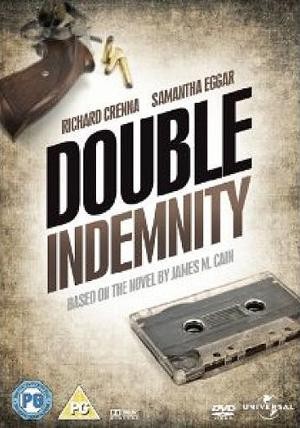
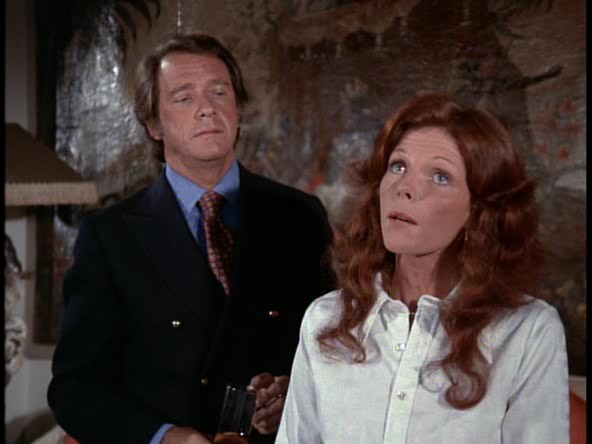

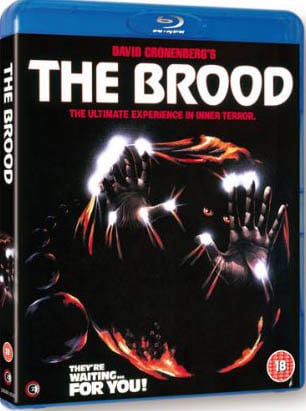
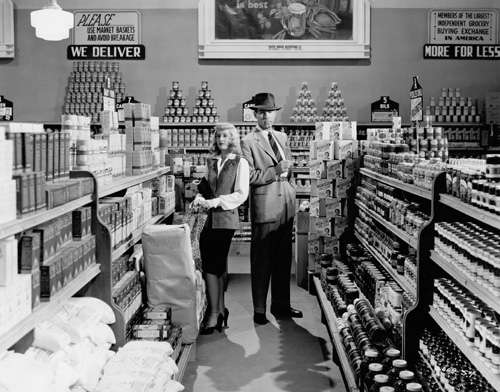
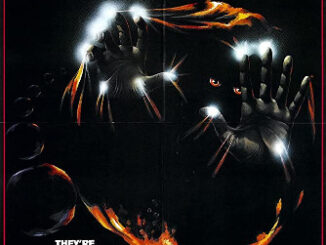
Be the first to comment